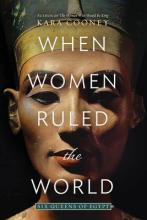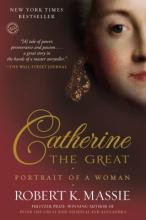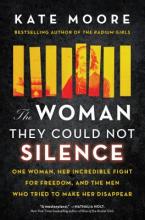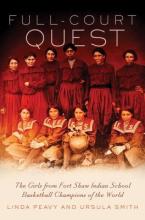Join us in celebrating Women's History Month with a captivating collection of reads. From fearless women who have led their nations through war to those whose legacies endure in timeless recipes, this curated selection offers something inspiring for every reader.

In 1876 Sophia Duleep Singh was born into Indian royalty. Her father, Maharajah Duleep Singh, was heir to the Kingdom of the Sikhs, one of the greatest empires of the Indian subcontinent. It was a territory irresistible to the British, who plundered everything. Exiled to England, the dispossessed Maharajah transformed his estate at Elveden in Suffolk into a Moghul palace. Sophia, was raised a genteel aristocratic Englishwoman. But, in secret defiance of the British government, she travelled to India, returning as a revolutionary. Sophia transcended her heritage to devote herself to battling injustice and inequality, a far cry from the life to which she was born. Her causes were the struggle for Indian Independence, the fate of the lascars, the welfare of Indian soldiers in the First World War--and, above all, the fight for female suffrage.

Witnesses to the brutal murder of their families and neighbors and the violent destruction of their communities, a cadre of Jewish women in Poland—some still in their teens—helped transform the Jewish youth groups into resistance cells to fight the Nazis. With courage, guile, and nerves of steel, these “ghetto girls” paid off Gestapo guards, hid revolvers in loaves of bread and jars of marmalade, and helped build systems of underground bunkers. They flirted with German soldiers, bribed them with wine, whiskey, and home cooking, used their Aryan looks to seduce them, and shot and killed them. They bombed German train lines and blew up a town’s water supply. The Light of Days at last tells the true story of these incredible women whose courageous yet little-known feats have been eclipsed by time.

In 1852, at age sixteen, Cixi was chosen as one of Emperor Xianfeng’s numerous concubines. When he died in 1861, their five-year-old son succeeded to the throne. Cixi at once launched a coup against her son’s regents and placed herself as the true source of power—governing through a silk screen that separated her from her male officials. Drawing on newly available sources, Jung Chang comprehensively overturns Cixi’s reputation as a conservative despot. Cixi’s extraordinary reign saw the birth of modern China. Under her, the ancient country attained industries, railways, electricity, and a military with up-to-date weaponry. She abolished foot-binding, inaugurated women’s liberation, and embarked on a path to introduce voting rights. Packed with drama, this groundbreaking biography reforms our view of a crucial period in China’s—and the world’s—history.

A historical account of the first-century Iceni leader who became legendary for her near-success in driving the Romans out of occupied Britain draws on new research and recent archaeological discoveries to reveal the subtler facts behind her mythological persona, in an account that also evaluates her role in Celtic culture and feminist and nationalist movements.

Female rulers are a rare phenomenon–but thousands of years ago in ancient Egypt, women reigned supreme. Regularly, repeatedly, and with impunity, queens like Hatshepsut, Nefertiti, and Cleopatra controlled the totalitarian state as power-brokers and rulers. But throughout human history, women in positions of power were more often used as political pawns in male-dominated societies. In this captivating narrative, celebrated Egyptologist Kara Cooney delivers a fascinating tale of female power, exploring the reasons why it has seldom been allowed through the ages–and why we should care.

In the late fourth and early fifth centuries of our era, Hypatia of Alexandria was the world's greatest living mathematician and astronomer. A strikingly beautiful woman and a devoted celibate, she lived in a city as turbulent and troubled as Baghdad or Beirut is today. She achieved fame not only in her special field, but also as a philosopher, religious thinker, and teacher who attracted a large popular following. Her life ended tragically in violence at the hands of a rampaging mob of Christian fanatics, who killed her for her "pagan" beliefs, some say at the instigation of St. Cyril of Alexandria. This is the first biography of Hypatia to integrate all aspects of her life. Mathematician Michael Deakin emphasizes that, though she was a philosopher, she was first and foremost a mathematician and astronomer of great accomplishment.

Years ago, archaeologists excavating near Pompeii unearthed a hoard of Roman treasures, among them a bowl depicting a woman with thick, curly hair and sporting an elephant-scalp headdress. For decades, theories circulated about her identity, until, at last, she was ascertained to be Cleopatra Selene, the only surviving daughter of Roman Triumvir Marc Antony and Egyptian Queen Cleopatra VII. Historian Jane Draycott reconstructs the exceptional life of this woman who, although born into royalty and raised in her mother's court, was held captive by Augustus and his sister, Octavia, after her parents' demise. Yet as Draycott shows, Cleopatra Selene was destined to emerge as an influential ruler in her own right, as queen. A long-overdue historical corrective, Cleopatra's Daughter reclaims a mighty regent, and her infamous family, for posterity.

Women are not ancillary to the history of technology; they turn up at the very beginning of every important wave. But they've often been hidden in plain sight, their inventions and contributions touching our lives in ways we don't even realize. VICE reporter and YACHT lead singer Claire L. Evans finally gives these unsung female heroes their due with her insightful social history of the Broad Band, the women who made the internet what it is today. Evans shows us how these women built and colored the technologies we can't imagine life without. Join the ranks of the pioneers who defied social convention and the longest odds to become database poets, information-wranglers, hypertext dreamers, and glass ceiling-shattering dot com-era entrepreneurs.

Traces the life of Elizebeth Smith, who met and married groundbreaking cryptologist William Friedman and worked with him to discover and expose Nazi spy rings in South America by cracking multiple versions of the Enigma machine.

In this panoramic work of history, Lady Antonia Fraser looks at women who led armies and empires: Cleopatra, Isabella of Spain, Jinga Mbandi, Margaret Thatcher, and Indira Gandhi, among others.

A captivating biography of the remarkable young Scotswoman whose bold decision to help “Bonnie” Prince Charlie—the Stuart claimant to the British throne—evade capture and flee the country has become the stuff of legend. This famous incident led to Flora’s enduring appeal as a courageous Scottish heroine, inspiring and influencing countless novels, poems, and songs. But her remarkable life didn’t come to a close with her clandestine mission to Skye. In this probing, evocative portrait of a tumultuous life, master historian Flora Fraser peels away the layers of misinformation, legend, and myth to reveal Flora MacDonald in full. Fraser presents a fascinating picture of this headstrong and irrepressible woman.

In work of narrative nonfiction filled with romance and high seas adventure, a historian and journalist charts the life of Sarah Kidd, who secretly aided and abetted her infamous husband, pirate Captain Kidd, from within the strictures of polite society in seventeenth- and eighteenth-century New York.

Zarifa Ghafari was three years old when the Taliban banned girls from schools, and she began her education in secret. She was six when American airstrikes began. She was twenty-four when she became mayor--one of the first female mayors in one of the most conservative provinces in Afghanistan. An extremist mob barred her from her office; her male staff walked out in protest; assassins tried to kill her three times. Through it all, Zarifa stood her ground. She ended corruption in the municipality, promoted peace, and tried to lift up women, despite constant fear for herself and her family. Written with honesty, pain, and ultimately, hope, Zarifa describes the work she did, the women she still tries to help as they live under Taliban rule, and her vision for how grassroots activism can change their lives and the lives of women everywhere.

In Wayward Lives, Beautiful Experiments, Saidiya Hartman examines the revolution of black intimate life that unfolded in Philadelphia and New York at the beginning of the twentieth century. In wrestling with the question of what a free life is, many young black women created forms of intimacy and kinship that were indifferent to the dictates of respectability and outside the bounds of law. They cleaved to and cast off lovers, exchanged sex to subsist, and revised the meaning of marriage. Longing and desire fueled their experiments in how to live. They refused to labor like slaves or to accept degrading conditions of work. Beautifully written and deeply researched, Wayward Lives recreates the experience of young urban black women who desired an existence qualitatively different than the one that had been scripted for them.

This book chronicles the life of Wilma Pearl Mankiller, the first woman ever elected to be chief of the Cherokee Nation.

This story of four royal women, their lives intertwined by family and bound by persecution, unravels the history of witchcraft in fifteenth-century England.

In 1950, the all-white, upper-crust US Lawn Tennis Association opened its door just a crack to receive a powerhouse player who would integrate "the game of royalty." The player was a street-savvy young Black woman from Harlem named Althea Gibson who was about as out-of-place in that rarefied and intolerant world as any aspiring tennis champion could be. Her tattered jeans and short-cropped hair drew stares from everyone who watched her play, but her astonishing performance on the court soon eclipsed the negative feelings being cast her way as she became one of the greatest American tennis champions. In Althea, prize-winning former Boston Globe reporter Sally H. Jacobs tells the heart-rending story of this pioneer, a remarkable woman who was a trailblazer, a champion, and one of the most remarkable Americans of the twentieth century.

Toufah is the story of Toufah Jallow, a brilliant and inspiring young woman who, after she was forced to flee to Canada from her home in The Gambia, bravely bucked taboo and named herself as a survivor of a sexual assault by the country's dictator- Yahya Jammeh-launching an unprecedented protest movement. Her testimony sparked marches of support and launched a social media outpouring of shared stories among West African women under #IAmToufah, setting Toufah Jallow on the path to reclaiming the future that Yahya Jammeh had tried to steal from her, a future of advocacy and leadership for survivors of sexual violence in The Gambia and beyond.

The woman at the heart of the New York Times bestseller and Oscar-winning film "Hidden Figures" shares her personal journey from child prodigy in the Allegheny Mountains of West Virginia to NASA human computer and her integral role in the early years of the U.S. space program

According to conventional wisdom, American women's campaign for the vote began with the Seneca Falls convention of 1848 and ended with the ratification of the Nineteenth Amendment in 1920. The movement was led by storied figures such as Elizabeth Cady Stanton and Susan B. Anthony. But this women's movement was an overwhelmingly white one, and it secured the constitutional right to vote for white women, not for all women. In Vanguard, acclaimed historian Martha Jones offers a sweeping history of African American women's political lives in America, recounting how they fought for, won, and used the right to the ballot and how they fought against both racism and sexism.

After the Indian wars, many Americans still believed that the only good Indian was a dead Indian. But at Ganado Mission in the Navajo country of northern Arizona, a group of missionaries and doctors--who cared less about saving souls and more about saving lives--chose a different way and persuaded the local parents and medicine men to allow them to educate their daughters as nurses. The young women struggled to step into the world of modern medicine, but they knew they might become nurses who could build a bridge between the old ways and the new. In this detailed history Jim Kristofic traces the story of Ganado Mission on the Navajo Indian Reservation.

In 1611, thirty-four-year-old Nur Jahan, daughter of a Persian noble and widow of a subversive official, became the twentieth and most cherished wife of the Emperor Jahangir. While other wives were secluded behind walls, Nur ruled the vast Mughal Empire alongside her husband, and governed in his stead as his health failed and his attentions wandered from matters of state.

One of history's most iconic figures, Cleopatra is rightly remembered as a clever and charismatic ruler. But few today realize that she was the last in a long line of Egyptian queens who bore that name. In The Cleopatras, historian Lloyd Llewellyn-Jones tells the dramatic story of these seven incomparable women, vividly recapturing the lost world of Hellenistic Egypt and tracing the kingdom's final centuries before its fall to Rome. Styling themselves as goddess-queens, the Cleopatras ruled through the canny deployment of arcane rituals, opulent spectacles, and unparalleled wealth. They navigated political turmoil and court intrigues, led armies into battle and commanded fleets of ships, and ruthlessly dispatched their dynastic rivals. The Cleopatras is a fascinating and richly textured biography of seven extraordinary women.

The story of the Cherokee Nation is told by Wilma Mankiller, who recounts her life and the racism she faced in her fight to lead it. Wilma Mankiller has been the principal chief of the Cherokee Nation since 1985. She tells her personal story (her political awakening came during the 1970 occupation of Alcatraz island), interwoven with the complex history of the Cherokee Nation.

Presents a reconstruction of the eighteenth-century empress's life that covers her efforts to engage Russia in the cultural life of Europe, her creation of the Hermitage, and her numerous scandal-free romantic affairs.

This is the autobiography of Catherine Meeks, describing her journey from the sharecropping fields of her father to the academy and beyond.

A National Book Award-winning, New York Times best-selling historian shows how girls who found self-understanding in the natural world became women who changed America. Harriet Tubman, forced to labour outdoors on a Maryland plantation, learned a terrain for escape. Louisa May Alcott ran wild, eluding gendered expectations in New England. The Indigenous women's basketball team from Fort Shaw, Montana, recaptured a sense of pride in physical prowess as they trounced the white teams of the 1904 World's Fair. Celebrating women like these who acted on their confidence outdoors, Wild Girls brings new context to misunderstood icons like Sakakawea and Pocahontas, and to under-appreciated figures like Gertrude Bonin, Dolores Huerta and Grace Lee Boggs.

1860: As the clash between the states rolls slowly to a boil, Elizabeth Packard, housewife and mother of six, is facing her own battle. The enemy sits across the table and sleeps in the next room. Threatened by Elizabeth's intellect, independence, and outspokenness, her husband of twenty-one years is plotting against her and makes a plan to put her back in her place. One summer morning, he has her committed to an insane asylum. There are many rational women on her ward who tell the same story: they've been committed not because they need medical treatment, but to keep them in line--conveniently labeled "crazy" so their voices are ignored. No one is willing to fight for their freedom, and disenfranchised both by gender and the stigma of their supposed madness, they cannot possibly fight for themselves. But Elizabeth is about to discover that the merit of losing everything is that you then have nothing to lose.

Sixteenth-century Europe was a hostile world dominated by court politics and patriarchal structures, and yet against all odds, two women rose to power: Elizabeth I and Catherine de Medici. One a young Virgin Queen who ruled her kingdom alone, and the other a more experienced and clandestine leader who used her children to shape the dynasties of Europe, much has been written about these shrewd and strategic sovereigns. But though their individual legacies have been heavily scrutinized, nothing has been said of their complicated relationship--thirty years of camaraderie, competition, and conflict that forever changed the face of Europe. In Blood, Fire, and Gold, historian Estelle Paranque offers a new way of looking at two of history's most powerful women: through the eyes of the other.

Playing like “lambent flames” across the polished floors of dance halls, armories, and gymnasiums, the girls from Fort Shaw stormed the state to emerge as Montana’s first basketball champions. Taking their game to the 1904 St. Louis World’s Fair, these young women introduced an international audience to the fledgling game and returned home with a trophy declaring them champions. World champions. And yet their triumphs were forgotten—until Linda Peavy and Ursula Smith chanced upon a team photo and embarked on a ten-year journey of discovery. Their in-depth research and extensive collaboration with the teammates’ descendants and tribal kin have resulted in a narrative as entertaining as it is authentic.

The remarkable, little-known story of two trailblazing women in the Early Middle Ages who wielded immense power, only to be vilified for daring to rule. Brunhild was a foreign princess, raised to be married off for the sake of alliance-building. Her sister-in-law Fredegund started out as a lowly palace slave. And yet, in sixth-century Merovingian France, where women were excluded from noble succession and royal politics was a blood sport, these two iron-willed strategists reigned over vast realms, changing the face of Europe.

Through examination of artefacts, writings, and possessions, this reappraisal of medieval femininity presents countless cases of influential women such as Jadwiga, the only female King in Europe, whose names were struck from history.

Who's really behind America's appetite for foods from around the globe? This group biography from an electric new voice in food writing honors seven extraordinary women, all immigrants, who left an indelible mark on the way Americans eat today. Taste Makers stretches from World War II to the present, with absorbing and deeply researched portraits of figures including Mexican-born Elena Zelayeta, a blind chef; Marcella Hazan, the deity of Italian cuisine; and Norma Shirley, a champion of Jamaican dishes. In imaginative, lively prose, Mayukh Sen-a queer, brown child of immigrants-reconstructs the lives of these women in vivid and empathetic detail, daring to ask why some were famous in their own time, but not in ours, and why others shine brightly even today.

Spanning the Great Depression and moving through World War II and beyond, this story follows the intrepid young black women, the 'Black Angels,' who, for twenty years, risked their lives working under dreadful conditions while caring for the city's poorest--1,800 souls languishing in wards, waiting to die or become 'guinea pigs' for experimental (often deadly) drugs. Yet despite their major role in desegregating the NYC hospital system--and regardless of their vital work in helping to find the cure for tuberculosis at Seaview--these nurses were completely erased from history. The Black Angels recovers the voices of these extraordinary women and puts them at the center of this story celebrating their legacy and spirit of survival.

The little-known true story of the unexpected and remarkable contributions to astronomy made by a group of women working in the Harvard College Observatory from the late 1800s through the mid-1900s.

Presents a social history of women journalists of the Gilded Age who went undercover to champion women's rights and expose corruption and abuse in America.

In the lives of Agnes Deernose and her family the reader will see both resistance to and acceptance of change. Staunch supporters of the Baptist church, the Deernose family nevertheless found ways to accommodate the traditional religion, particularly the Crow belief in Akbatatdea, the Creator. Through Agnes's account the reader attains a sense of how the Crows integrated religion, family structure, political and social activities, the distribution of wealth, and education - even as the fabric of their traditional ways unraveled about them.

Labor leader, civil rights activist, outspoken feminist, African American clergywoman--Reverend Addie Wyatt stood at the confluence of many rivers of change in twentieth century America. The first female president of a local chapter of the United Packinghouse Workers of America, Wyatt worked alongside Martin Luther King Jr. and Eleanor Roosevelt and appeared as one of Time magazine's Women of the Year in 1975. Marcia Walker-McWilliams tells the incredible story of Addie Wyatt and her times. What began for Wyatt as a journey to overcome poverty became a lifetime commitment to social justice and the collective struggle against economic, racial, and gender inequalities. Walker-McWilliams illuminates how Wyatt's own experiences with hardship and many forms of discrimination drove her work as an activist and leader.

Years ago, when O. Henry Prize-winning writer Crystal Wilkinson was baking a jam cake, she felt her late grandmother's presence. She soon realized that she was not the only cook in her kitchen: there were an abundance of ancestors stirring, measuring, and braising with her. These are her kitchen ghosts, five generations of Black women who arrived in her region of Appalachia and made a life, a legacy, and a cuisine. Part food memoir, part cookbook, this volume weaves fiction with historical records, memories, and interviews to present a unique culinary portrait of Black Appalachians. Forty recipes rooted deep in the past yet full of contemporary flavor are brought to vivid life through photography and beautiful illustrations.

In Where Rivers Part, told from her mother's point of view, Kao Kalia Yang unveils her mother's epic struggle towards safety and the important undocumented history of a time and place most US readers know nothing about, offering insight into America's Secret War in Laos with tenderness and unvarnished clarity. In doing so, she excavates the plight of many refugees, who suffer silently and are often overlooked as one of the essential foundations of this country. For readers of The Wild Swans by Jung Chang, The Spirit Catches You When You Fall Down by Anne Fadiman, and those who flock to stories about survival during wartime, Where Rivers Part is not only a personal account of resilience and survival but also a powerful and transporting look into Laos's Secret War and the lived experiences of the Hmong people.